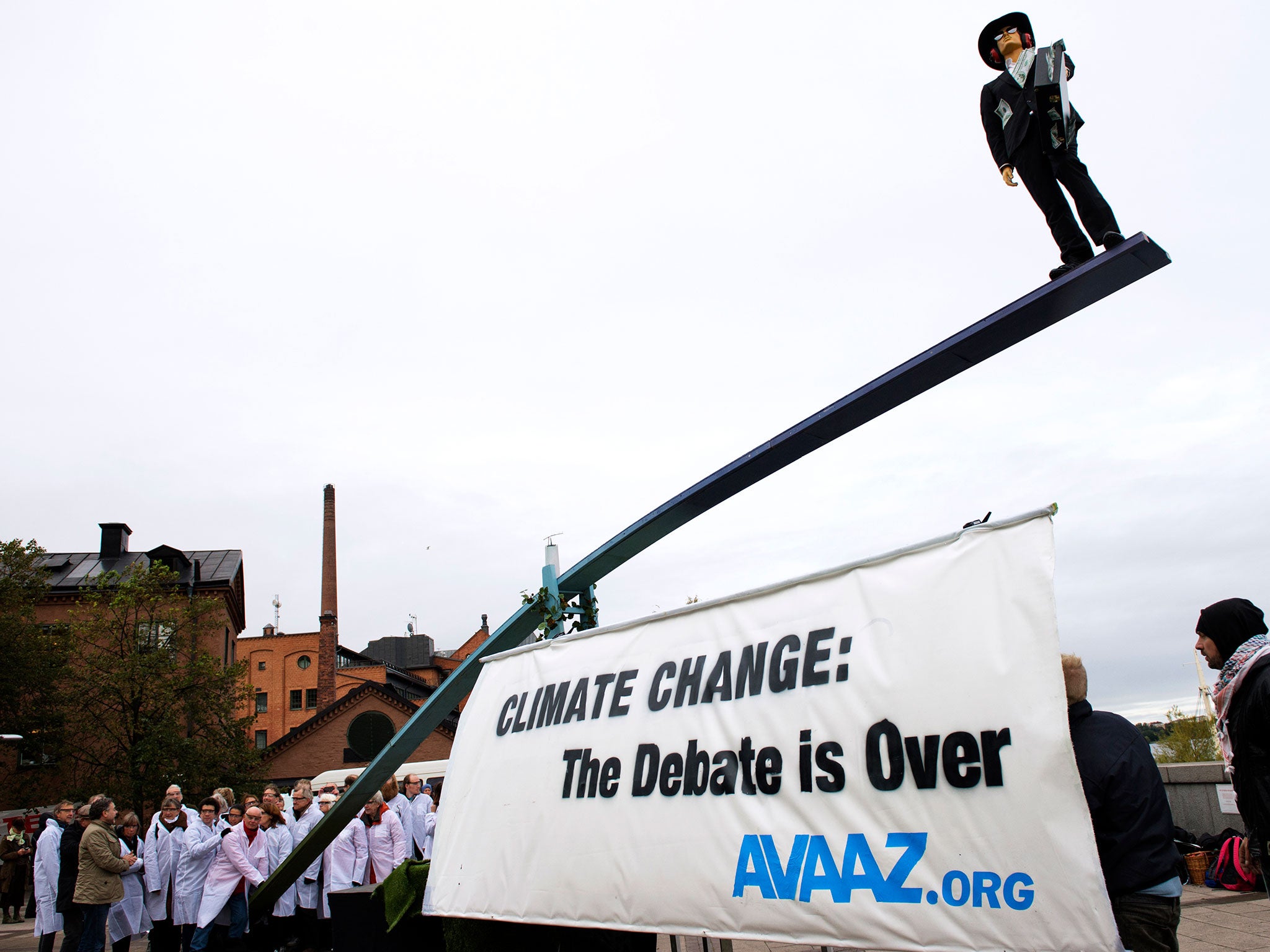Improved communication between experts and the public key in winning battle to curb climate change, claims expert
Professor Chris Rapley believes scientists should rely less on scientific fact and more on narrative techniques to make their points

Scientists need to become more humble and to completely re-think the way they communicate if the battle to curb climate change is to be won, one of the world's leading climate experts has warned.
Lamenting what he calls a “mismatch” between the state of climate science and the needs of society, Professor Chris Rapley called on his colleagues across the world to throw off the shackles of tradition and engage in a radically different approach to their discipline.
Climate scientists need to be more critical about their own research, more open to the work and views of other people and to communicate much more clearly with the public, said Professor Rapley, of the University College London.
At the same time, they need to defend their work more robustly against climate sceptics and, in a recommendation many may find surprising, rely less on scientific fact and more on narrative techniques such as personal anecdotes, emotion and rhetoric to make their points, he added.
Professor Rapley led a big research project into climate science communication with his UCL colleagues and a number of other universities, including Oxford and King's College, London, which published its findings today.
“My experiences have convinced me that our training and development has left us insufficiently prepared to contribute as effectively as we should both to public policy, and to communicating our results and conclusions to society more generally,” Professor Rapley said.
“We are especially ill-equipped to deal with controversy in the media and to respond to public attacks on our motivations and behaviours,” he added, advocating the creation of a professional body for climate scientists that, among other things, would train scientists to engage more effectively with climate sceptics.
Professor Rapley admitted that he was also guilty of biased thinking, as he urged scientists to be more critical of their own work and to be less willing to dismiss research that contradicted their thinking.
“As a scientist I have not previously invested appropriate effort into evaluating the strengths and weaknesses of my primary research instrument - my mind,” he said.
He said the research project had given him “a heightened recognition of the need constantly and with determination to scrutinise my own emotions and thought processes - to step outside and 'see myself see'”.
This is necessary “to minimise the possibility of unwitting bias and faulty reasoning. The same need applies to everyone involved in the climate science discourse,” he said.
The report, entitled Time for Change, concluded that to communicate much more “powerfully” with the public, scientists need to personalise their story, drawing on emotions and expressing their opinions - an approach it concedes is “contrary to long-standing tradition” but which, with mainstream audiences, is more effective than piling on ever-more facts to make a point.
“Dialogue rather than debate offers the means to identify common purpose and foster constructive evidence-based discourse. Climate scientists can gain much by working with and learning from those expert in public discourse, including the arts, museum sector and media,” the report recommends.
The report, which also included contributions from leading scientists at the universities of Surrey, Cardiff and Bristol, said there was also a pressing need to re-examine the role of scientists in decision-making and policy making.
Other recommendations include setting up a forum for the general public and climate scientists to engage in dialogue about climate change, helping to create a coherent 'meta-narrative' that conveys the big picture and provides the context for discussion of the results, their uncertainties and their implications. The authentic and personalised voice of climate scientists in the formation and delivery of this 'meta-narrative' will be crucial and will rely on successful use of and engagement with the media and the internet, the report found.
But above all, every party needs to take the concerns of others seriously, however strongly they may disagree, the report concluded.
“Active critical self-reflection and humility should become the evident and habitual cultural norm on the part of all participants in the climate discourse,” the report said.
Other contributors to the report include the European Academies Science Advisory Council, the University of the West of England, the Smithsonian Institution, US National Oceanographic and Atmospheric Administration, the Royal Society of Arts and the Institute of Pyschoanalysis.
Subscribe to Independent Premium to bookmark this article
Want to bookmark your favourite articles and stories to read or reference later? Start your Independent Premium subscription today.

Join our commenting forum
Join thought-provoking conversations, follow other Independent readers and see their replies